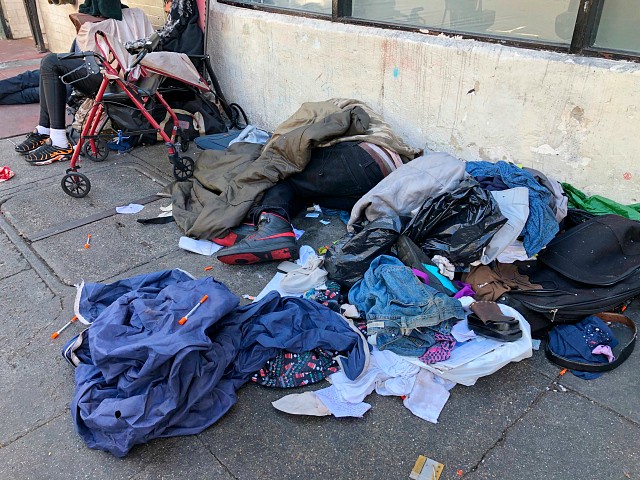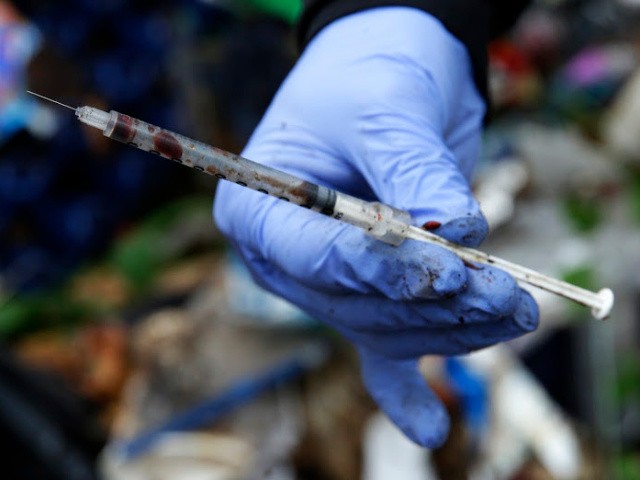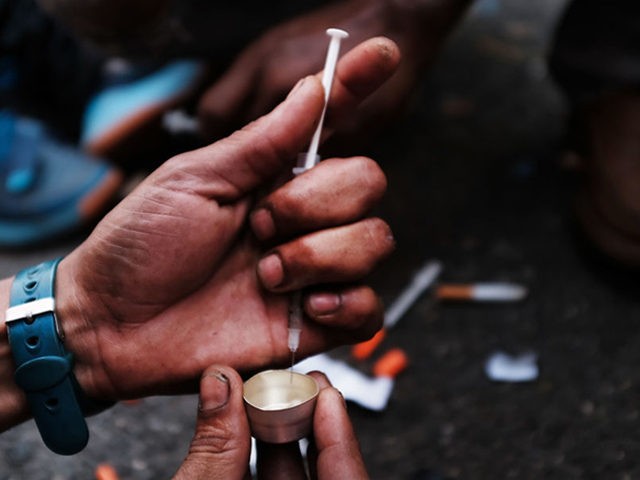President Joe Biden’s administration is rolling out a new plan to combat the rise in drug overdose deaths, including establishing clean needle exchange programs and providing fentanyl testing strips for drug users across the country.
According to a report released Wednesday by the U.S Department of Health and Human Services (HHS), 840,000 people died of drug overdoses between 1999 and 2019. Some estimates put the number of non-fatal overdoses at 20 to 30 times that amount. Last year, over nine million Americans misused pain pills. Of those nine million Americans, roughly 100,000 people died from overdoes.
Speaking to NPR about combatting these overdoes, HHS Secretary Xavier Becerra told NPR,” We are willing to go places where our opinions and our tendencies have not allowed us to go [before].”
According to NPR, the federal government will now directly support ideas known as harm reduction, where care and support are provided to individuals actively using illegal drugs. The administration’s harm reduction policies will support clean needle exchange programs and provide fentanyl test strips to active drug users. These two programs are designed to slow the spread of diseases like HIV/AIDS and Hepatitis that spread through drug needles and help drug users identify contaminated street drugs.

In this photo taken July 25, 2019, sleeping people, discarded clothes and used needles sit across the street from a staffed “Pit Stop” public toilet in the Tenderloin neighborhood in San Francisco. (AP Photo/Janie Har)
“We are literally trying to give users a lifeline,” Becerra said.
Becerra, former Attorney General of California, will follow the lead of jurisdictions like California, New York City, and other communities where harm reduction programs are instated.
One of the more controversial aspects of harm reduction programs is building drug consumption sites, which are locations where officials monitor drug users to ensure their safety.
Becerra initially expressed support for drug consumption sites, however, a spokesperson from the HHS later walked back the comments Becerra made to NPR.
“We’re not going to say ‘but you can’t do these other type of supervised consumption programs that you think work or that evidence shows work,’” Becerra said.
The HHS spokesperson told NPR, “HHS does not have a position on supervised consumption sites. The issue is a matter of ongoing litigation. The Secretary was simply stressing that HHS supports various forms of harm reduction for people who use drugs.”’

In this Nov. 8, 2017 photo, Steph Gaspar, a volunteer outreach worker with The Hand Up Project, an addiction and homeless advocacy group, holds a used and blood-filled needle used for drug injection that she found while cleaning up a homeless encampment in Everett, Wash. (AP Photo/Ted S. Warren)
Drug consumption sites are currently banned in the country. Former President Donald Trump’s Justice Department successfully fought against the creation of such a site in Philadelphia.
Although many experts in drug policy support this move by the Biden administration, harm reduction still faces much opposition from elected officials and other jurisdictions. There are grassroots efforts in states like West Virginia, Pennsylvania, and North Carolina to close down or restrict their harm reduction programs.
In addition to testing strips and needle exchanges, the administration’s plan hopes to provide greater access to drug treatment, create programs to address racial and regional inequities in addiction treatment, and make an effort to reduce the stigma for Americans suffering addiction.
This plan will cost an estimated $11.2 billion, which the administration is seeking congressional funding.

COMMENTS
Please let us know if you're having issues with commenting.